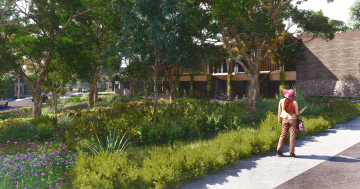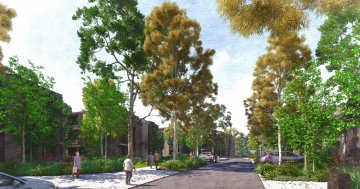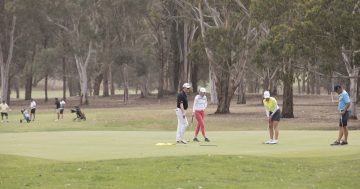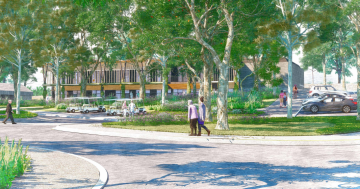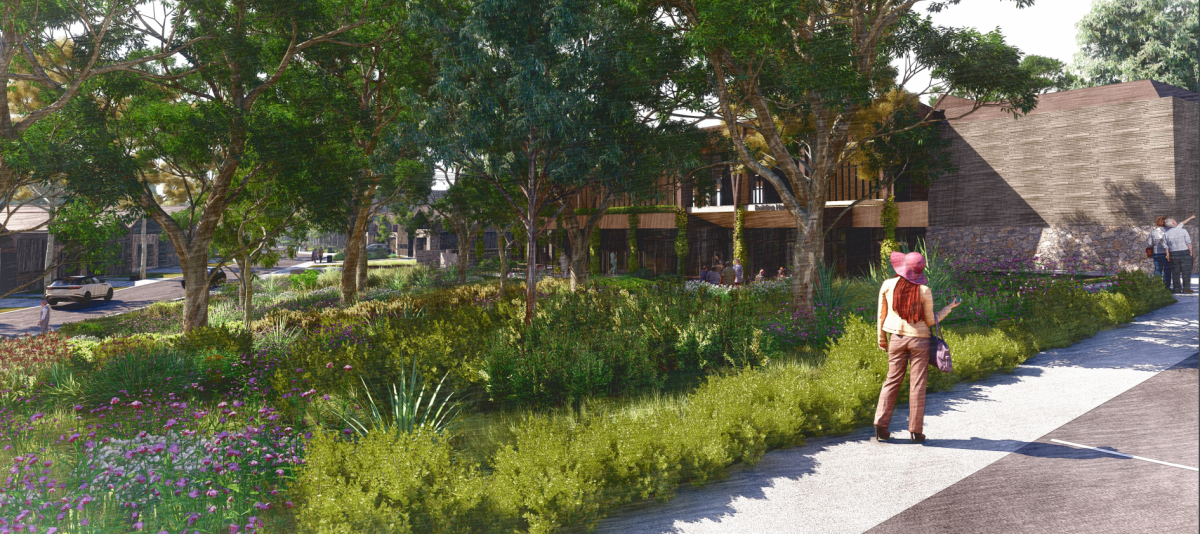
An artist’s impression of the proposed retirement village development. The project won’t make the club more viable, says a former president. Image: GDH.
The former club president has accused the Federal Golf Club board of being negligent and commercially naive in its bid to develop a retirement village on a section of the Red Hill course with Sydney developer MBark.
The submission from David Bain-Smith, who resigned last month over the board’s decision to sign a new agreement with MBark, is one of about 400 representations made to each of four recently submitted development applications related to the project.
The representations are now posted online with the DAs, but the Environment, Planning and Sustainable Development Directorate has removed who or where they are from. Mr Bain-Smith’s can be identified because he refers to his resignation in his submission.
In previous DAs, the presence of representations from the Mbark and family members in support of its own project sparked criticism.
Mr Bain-Smith is a respected businessman and the managing director of specialist recruitment firm Calleo.
He believes the community, ACT Government and the club will all be losers if the development goes ahead.
“The local community and/or the ACT Government will not receive a reasonable benefit from them [the DAs],” Mr Bain-Smith says.
“The development will also result in restricted access for the community and will not achieve financial viability or material improvement to the club’s financial position.”

David Bain-Smith: “The loss/cost to the community far outweighed any benefits received by the club.” Photo: Calleo.
He says he quit as president as he was unwilling to sign a memorandum of understanding and associated commercial documents with Mbark, telling the board at the time that the decision to pursue this development was negligent.
“It also demonstrated significant commercial naivety and put the club under significant and unnecessary risks,” Mr Bain-Smith said.
“Irrespective of my resignation and advice, the board executed these documents with Mbark on the same day.”
As a community asset, any rezoning of the land allowing other purposes and/or commercial gain should ensure there are benefits to the ACT community and government, Mr Bain-Smith says.
“However, this proposed development does NOT [his emphasis] deliver adequate benefit to the community or club members, impacts negatively on the environment and unnecessarily restricts community access to Federal’s ‘green zone’,” he says.
He believes the development will not provide Federal Golf Club with sustainable long-term prospects of financial viability but will likely have an adverse impact in the short and long term.
“The loss/cost to the community far outweighed any benefits received by the Club,” Mr Bain-Smith says.
He says the club won’t be able to protect the asset ‘gifted’ to it by the government because it won’t receive “remotely enough benefit to protect, maintain or retain reasonable control of the asset”.
“This will adversely impact community benefits in the short term and likely to have progressively diminish these benefits,” Mr Bain-Smith says.
A club member of 40 years also writes that they supported the original proposal on cleared areas of the course and believed its $18 million value would have enabled infrastructure upgrades and secured the club’s future.
But the new proposal did not stack up.
“The new development at the Hughes end of the course requires the destruction of beautiful habitat,” the member says. “It also reduces the $ value as the replacement costs of the holes lost to the development are fully borne by our club.
“Bottom line is at the end of the development, the club will be financially still in stress, unable to fund the major upgrades urgently needed to the club house and no funds leftover going forward.
“This development is a lose-lose for the habitat, the community and the Federal Golf Club and should not proceed.”












